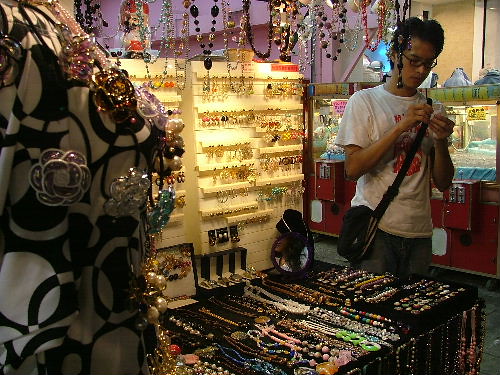KMT, DPP Clash over Improvements in the Crime Rate
 Back in March the View from Taiwan blogged on Premier Su's ridiculous claim that he would lower the crime rate. The Taipei Times noted:
Back in March the View from Taiwan blogged on Premier Su's ridiculous claim that he would lower the crime rate. The Taipei Times noted:Premier Su Tseng-chang (蘇貞昌 ) has promised not only to step down as premier if the crime rate does not fall in six months, but also to leave politics altogether. There's a riskiness in such politicking that will not help Su in his drive for the Democratic Progressive Party's (DPP) presidential nomination. This strategy has since been sanctioned by the Presidential Office.
The whole affair was asinine, and Su's promise absurd. The KMT called him on it yesterday:
KMT legislators called a press conference yesterday demanding Su's resignation for being unable to deliver on his promise. The KMT legislators said that three different surveys had shown that more than half of the respondents didn't believe that public order had improved.
"According to the three surveys, the rate of people's satisfaction with public order has been on the downside, proving that Su has failed to keep his promise," said Tseng Yung-chuan (曾永權), head of the KMT's policy coordination department.
One survey conducted by Shih Hsin University said that the public's satisfaction rate had fallen to 30.2 percent this month from 33.2 percent in March while the dissatisfaction rate rose from 50.4 percent in March to 58.8 percent, Tseng said.
However, Vice Minister of the Interior Chien Tai-lang (簡太郎) yesterday told legislators that the improvement in public order had been satisfactory over the past six months.
The Green Taiwan Solidarity Union, always ready hack on fellow Green DPP, joined the KMT in criticizing Su. Meanwhile the Su's supporters fought back:
However, Vice Minister of the Interior Chien Tai-lang (簡太郎) yesterday told legislators that the improvement in public order had been satisfactory over the past six months.
"Public order has been slowly improving, even though there is still room for improvement," Chien said during a meeting with Taiwan Solidarity Union (TSU) legislators.
Chien issued a report which illustrated that much improvement had been made in public order around the nation in eight key areas.
"In terms of major criminal cases, the incident rate between March and September fell by 15 percent while the clear-up rate increased by 5.08 percent compared with the same period last year," said Hung Sheng-kun, deputy director-general of National Police Agency.
Hung added, "Meanwhile, there was significant reduction (32.36 percent) in the rate of automobile theft and a 21.11 percent reduction in motorcycle theft over the same period when compared with the same period of last year."
The problem here is basically that there are no good numbers. The statistics are constructions and orders for their construction come down from top. Hence, anyone who wanted to "reduce" crime need only send down quotas for lower crime figures, a common tactic for both parties. Policemen in Taiwan are well known for burying cases, so much so that it became an embarrassment that forced the government to begin a receipt system so that the public would have evidence from the police that a case exists. As anthropologist Jeff Martin put it in his excellent presentation on the police:
"You have to recognize that the policeman himself is just a pawn in this much larger political game," Jeff said. The policeman have no particular stake in the theft of your motorcycle, but somewhere above their heads is "some idiot who has said that if the crime rate goes up, I will resign." There is no way to effectively decrease the scooter theft rate, and no way to increase the recovery rate. The only way to influence the crime rate short of a miracle, is to influence the crime statistics. These become "very real political pressures," he explained, on the local substation commanders. "If your substation reports more than 15 motorcycles stolen this month, you are not getting a promotion." Essentially, Jeff said, laughing, this becomes "you have 15 motorcycle theft reports -- use them wisely."
Nor are the opinion polls any better, since my experience with the locals is that they are reflexively critical of the government, to the point of unreason (never mind that anything that passes through a political party's hands cannot be trusted). Only an in-depth, interview-based crime survey by a neutral sociological organization could produce a reasonable picture of crime in Taiwan -- and as far as I know, nothing like that exists. At the moment, I would argue, no one knows what the crime rate is in Taiwan...
Taiwan Democracy Su Tseng-chang
















0 Comments:
Post a Comment
<< Home